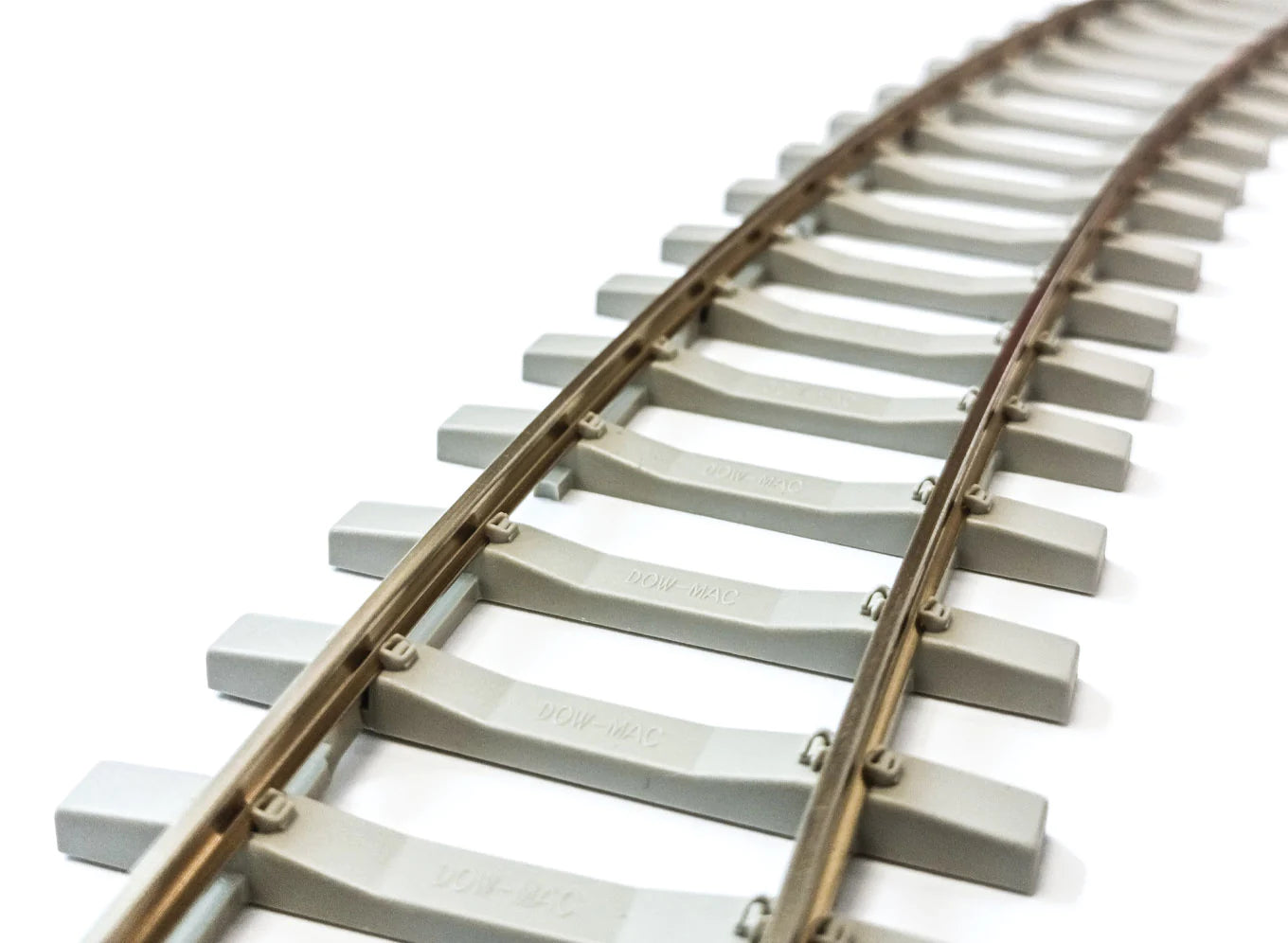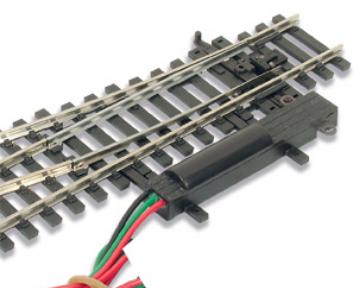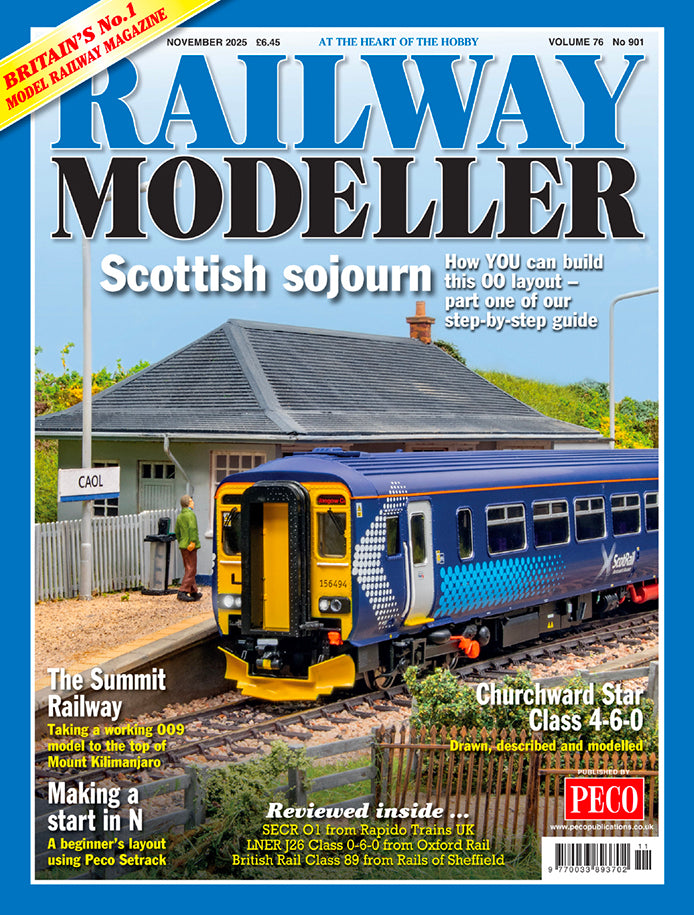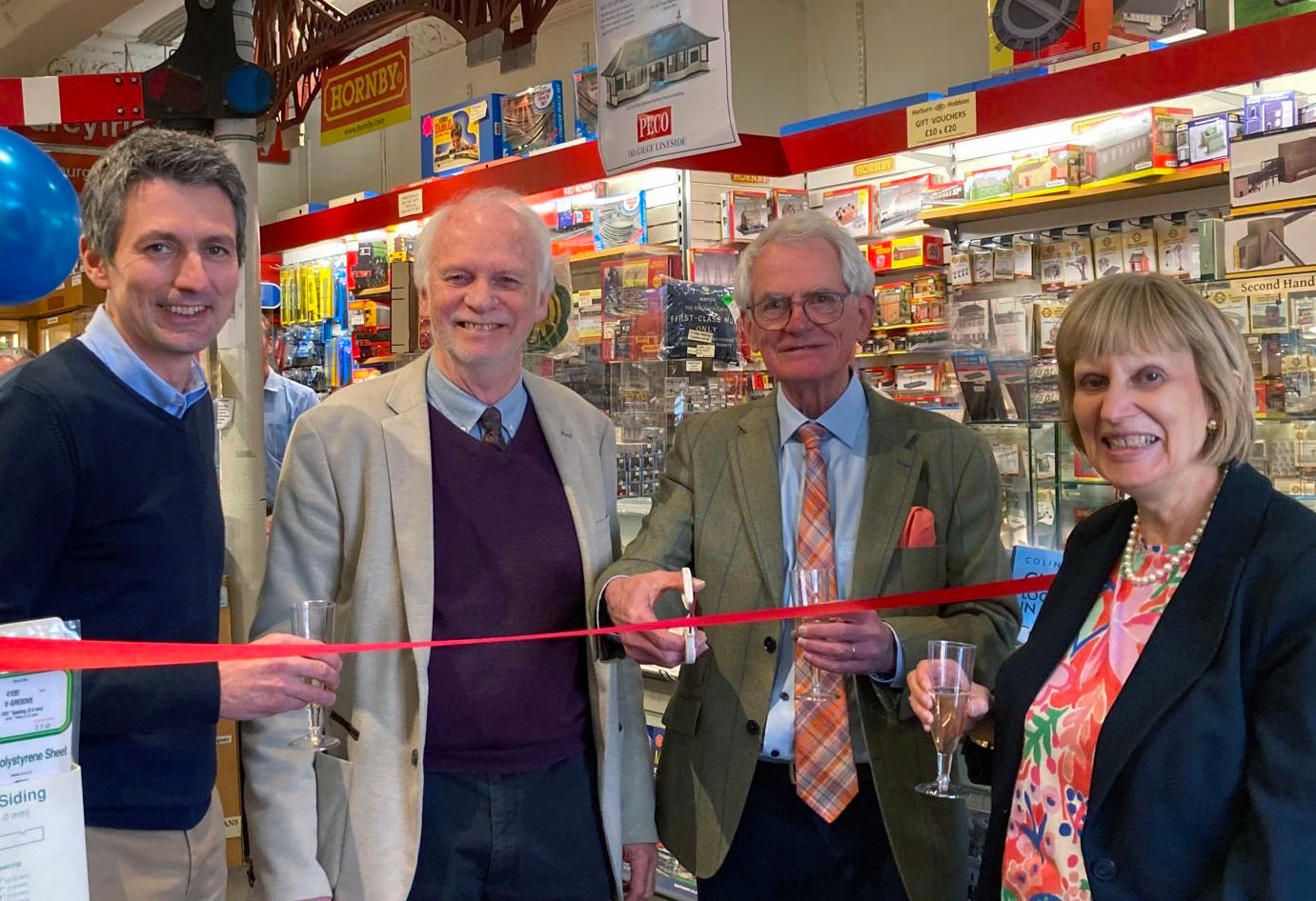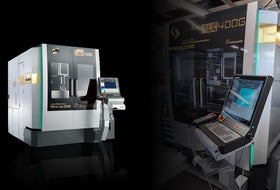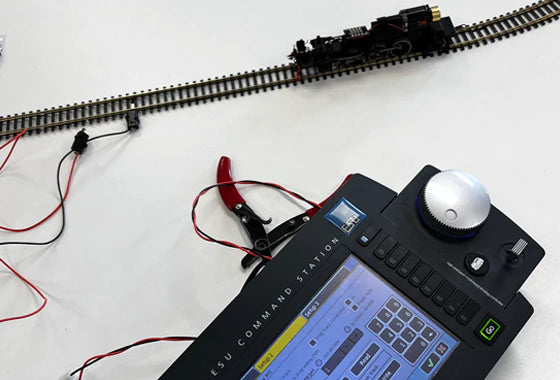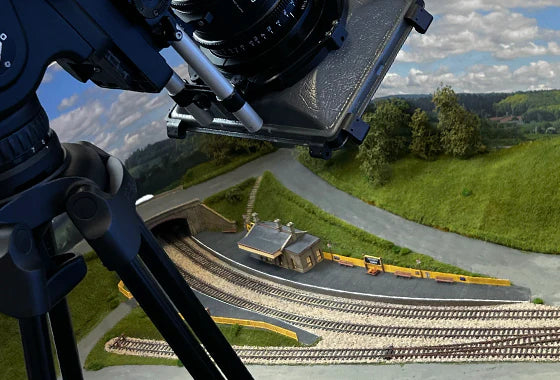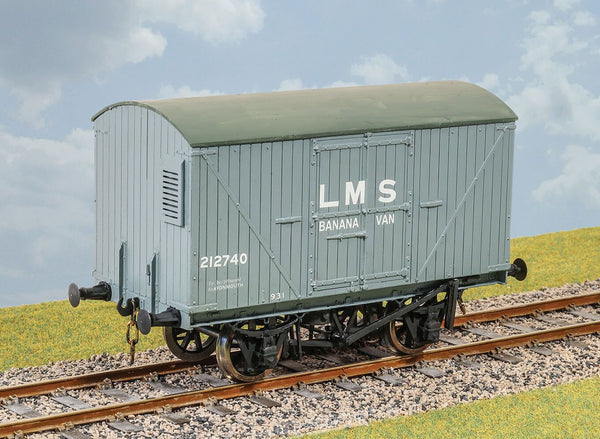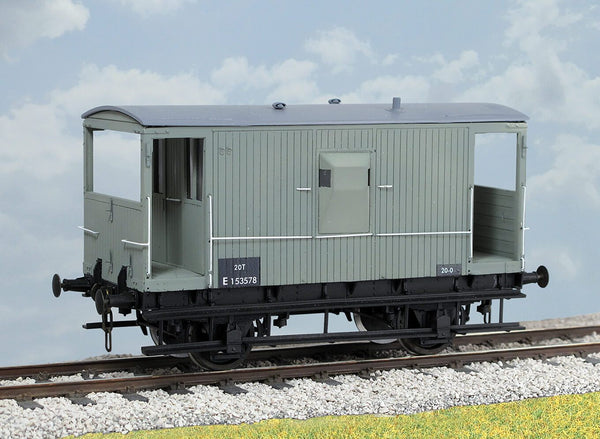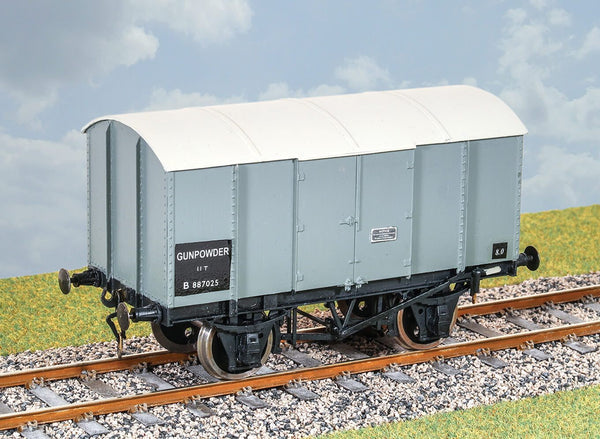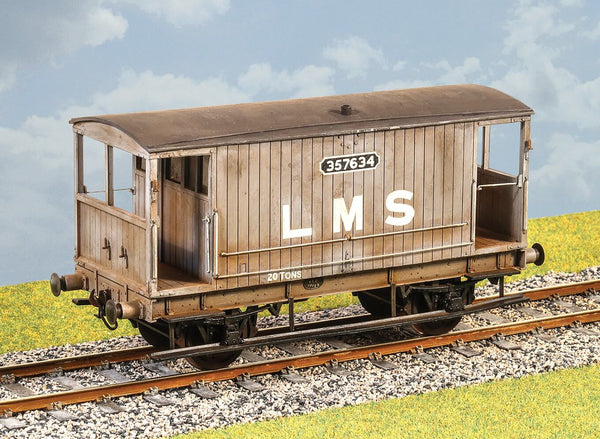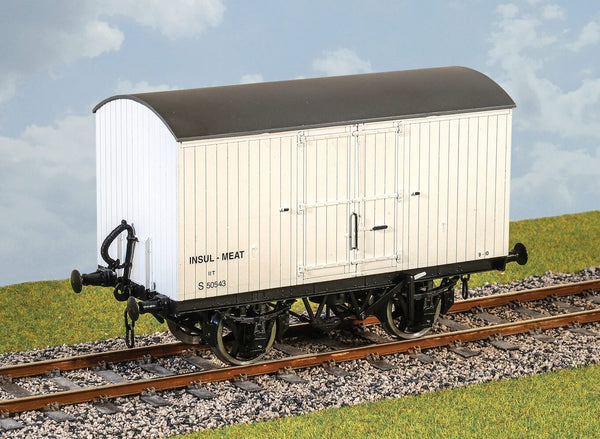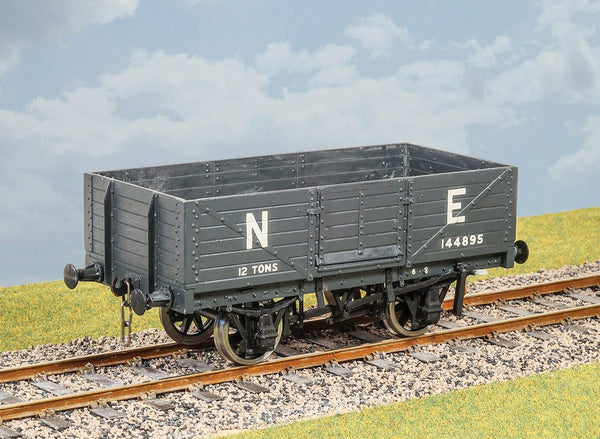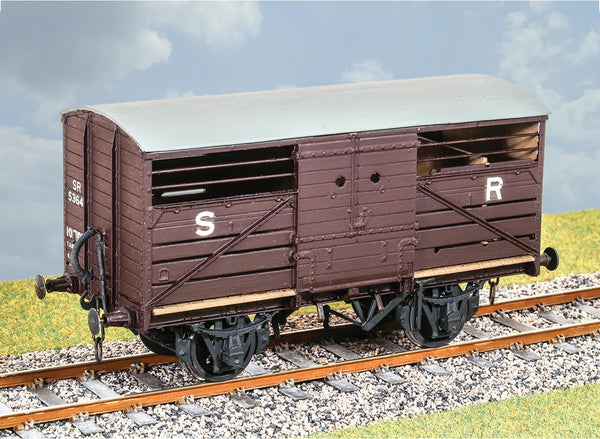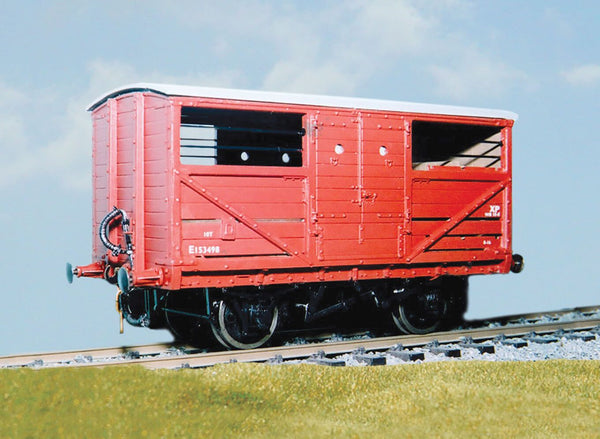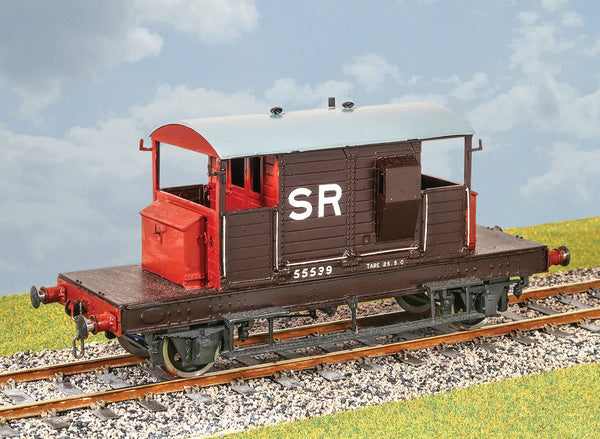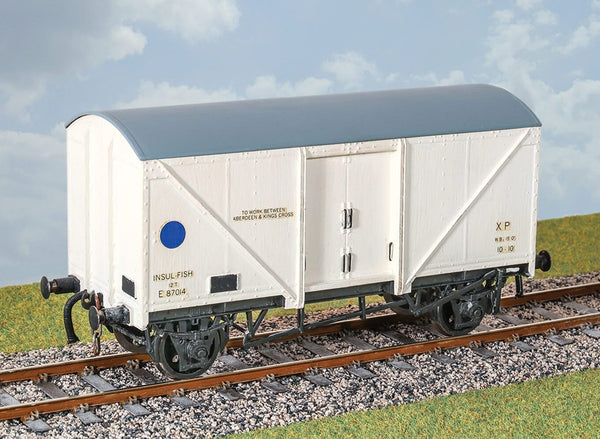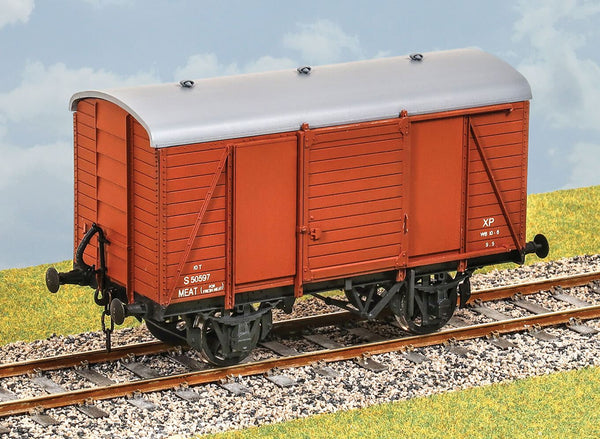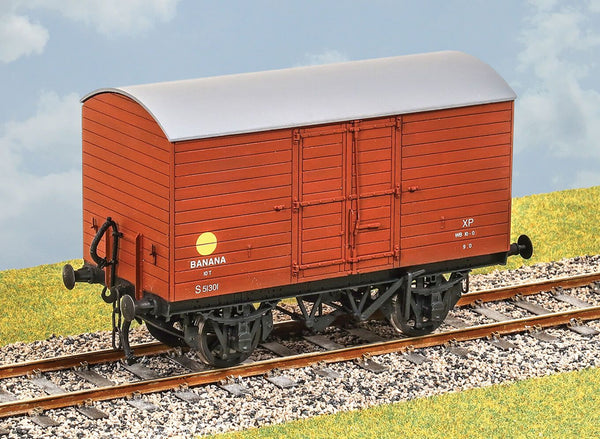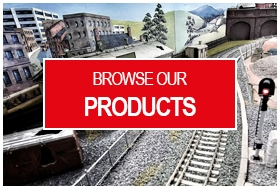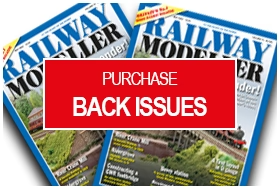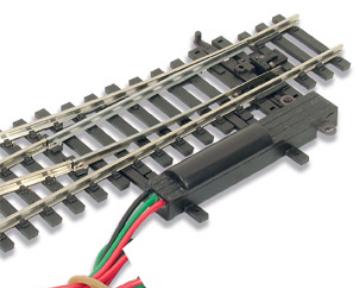BROWSE PECO PRODUCTS
Browse through our complete product portfolio.
1872 Products Found
LMS 10ton Banana Van
1,000 of these vans were built between 1925 and 1930 to carry ripening bananas from ports to inland warehouses. They were steam heated by means of through pipes from the locomotive. The steam heating equipment was later removed, but the vans lasted into the 1960s. Transfers for LMS and BR. These finely moulded plastic wagon kits come complete with pin point axle wheels and bearings, 3 link couplings and transfers. This kit is supplied with pre-coloured moulded parts although painting can improve the appearance. Additional parts to enable the vehicle to be modelled incorporating modifications made to the prototypes during their working life are included where appropriate.
LNER 20ton Goods Van Toad
Built between 1930 and 1935, around 900 were constructed. They were a successful design and many lasted into the 1960s, mostly on the Eastern Region. Transfers for LNER and BR. These finely moulded plastic wagon kits come complete with pin point axle wheels and bearings, 3 link couplings and transfers. This kit is supplied with pre-coloured moulded parts although painting can improve the appearance. Additional parts to enable the vehicle to be modelled incorporating modifications made to the prototypes during their working life are included where appropriate.
LMS/LNER/BR Gunpowder Van
These vans were built in various batches in the 1930s. More were made during the Second World War, and BR adopted the design for its early build versions. Transfers for LMS, LNER and BR. These finely moulded plastic wagon kits come complete with pin point axle wheels and bearings, 3 link couplings and transfers. This kit is supplied with pre-coloured moulded parts although painting can improve the appearance. Additional parts to enable the vehicle to be modelled incorporating modifications made to the prototypes during their working life are included where appropriate.
LMS MR Design 20ton Goods Brake Van
849 of these brake vans were built to a Midland railway design, between 1924 and 1927. Despite their early construction, many lasted well into the 1960s, and indeed some went into civil engineer’s service into the 1970s. Transfers for LMS and BR. These finely moulded plastic wagon kits come complete with pin point axle wheels and bearings, 3 link couplings and transfers. This kit is supplied with pre-coloured moulded parts although painting can improve the appearance. Additional parts to enable the vehicle to be modelled incorporating modifications made to the prototypes during their working life are included where appropriate.
SR Insulated Van
75 insulated vans were built in 1931, and were used for meat and banana traffic. The carrying capacity was increased to 11 tons in the early 1940s, and lasted in service into the 1960s. Transfers for SR and BR. These finely moulded plastic wagon kits come complete with pin point axle wheels and bearings, 3 link couplings and transfers. This kit is supplied with pre-coloured moulded parts although painting can improve the appearance. Additional parts to enable the vehicle to be modelled incorporating modifications made to the prototypes during their working life are included where appropriate.
LNER 12ton 6 Plank Open Wagon
Standard LNER open wagon for its first decade. Over 20,000 were built. An original Great Northern railway design, the LNER continued production at Doncaster and Darlington. Transfers for LNER and BR. These finely moulded plastic wagon kits come complete with pin point axle wheels and bearings, 3 link couplings and transfers. This kit is supplied with pre-coloured moulded parts although painting can improve the appearance. Additional parts to enable the vehicle to be modelled incorporating modifications made to the prototypes during their working life are included where appropriate.
SR Standard Cattle Wagon
The Southern built 299 of these vans between 1930 and 1939. Many of these wagons lasted into the 1960s, despite the decline in livestock traffic. Transfers for SR and BR. These finely moulded plastic wagon kits come complete with pin point axle wheels and bearings, 3 link couplings and transfers. This kit is supplied with pre-coloured moulded parts although painting can improve the appearance. Additional parts to enable the vehicle to be modelled incorporating modifications made to the prototypes during their working life are included where appropriate.
LNER Cattle Wagon -Vac Brake Fitted
Earlier wagons in this fleet were converted from 9-foot vehicles, but later ones were constructed on 10-foot chassis from the outset. All were on wooden chassis. Although cattle trade declined on the railways between the wars, many wagons lasted into the 1960s. Transfers for LNER and BR. These finely moulded plastic wagon kits come complete with pin point axle wheels and bearings, 3 link couplings and transfers. This kit is supplied with pre-coloured moulded parts although painting can improve the appearance. Additional parts to enable the vehicle to be modelled incorporating modifications made to the prototypes during their working life are included where appropriate.
SR 25ton Goods Brake Van
Construction of this type began in 1929, lasting until 1933. They tended to be used on local and slow goods trains. After Nationalisation they migrated into the BR system, some lingering on into the 1970s and 1980s. Transfers for SR and BR. These finely moulded plastic wagon kits come complete with pin point axle wheels and bearings, 3 link couplings and transfers. This kit is supplied with pre-coloured moulded parts although painting can improve the appearance. Additional parts to enable the vehicle to be modelled incorporating modifications made to the prototypes during their working life are included where appropriate.
BR 12ton Insulated Fish Van
This is a well-known vehicle, derived from the final LNER Fish van design. BR built 1,000 of them. After fish traffic ended they were converted to Parcels Vans (SPV) and lasted into the 1980s. The kit allows both oil and roller bearing axle box versions to be built. Transfers for BR. These finely moulded plastic wagon kits come complete with pin point axle wheels and bearings, 3 link couplings and transfers. This kit is supplied with pre-coloured moulded parts although painting can improve the appearance. Additional parts to enable the vehicle to be modelled incorporating modifications made to the prototypes during their working life are included where appropriate.
SR Meat Van
The Southern built 100 of these vans between 1931 and 1934 to carry fresh meat from the West Country to principle markets in London and the Midlands. They lasted in service into the 1960s. The sliding doors made them quite unusual. Transfers for SR and BR. These finely moulded plastic wagon kits come complete with pin point axle wheels and bearings, 3 link couplings and transfers. This kit is supplied with pre-coloured moulded parts although painting can improve the appearance. Additional parts to enable the vehicle to be modelled incorporating modifications made to the prototypes during their working life are included where appropriate.
SR Banana Van
200 of these vans were built in 1935 and lasted into the 1960s. They were not confined to the Southern, and could therefore be found throughout Britain, especially as bananas were imported through a number of ports. Transfers for SR and BR. These finely moulded plastic wagon kits come complete with pin point axle wheels and bearings, 3 link couplings and transfers. This kit is supplied with pre-coloured moulded parts although painting can improve the appearance. Additional parts to enable the vehicle to be modelled incorporating modifications made to the prototypes during their working life are included where appropriate.
